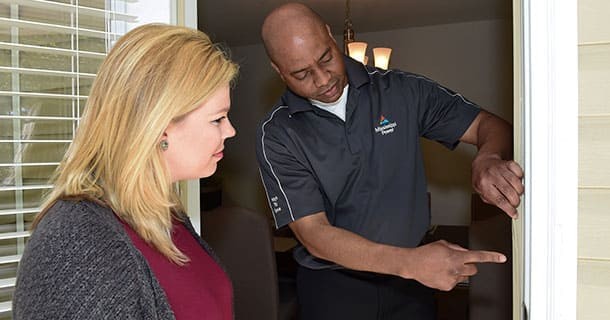Electric Vehicle FAQ
Electric cars have soared in popularity in the last few years. Mississippi Power supports a trend that reduces carbon emissions and is helping to revolutionize personal transportation. Learn more about the practicality of electric cars with our frequently asked questions.
How involved in electric transportation is Mississippi Power?
Mississippi Power is finding ways to help customers who purchase electric vehicles. We're designing lower rates for off-peak usage so that customers have the opportunity to save on their charging costs.
We are working with major vehicle manufacturers and the Electric Power Research Institute (EPRI) to bring economically and technologically viable on-road electric transportation technologies to the marketplace, enhance the speed of adoption, and understand the impacts of vehicle charging on our nation's electricity grid.
Mississippi Power is studying the impact of electric transportation on grid reliability, including vehicle-to-home (V2H) and vehicle-to-grid (V2G) technologies.
The company is also evaluating plug-in electric vehicles - both hybrid and total electric - and charging technologies for use in its own operations. We expect that we'll see increased customer satisfaction as a result of this research.
How can electric vehicle users reduce their environmental impact when so much of our electricity is produced with coal?
Gasoline or diesel engines deteriorate over time leading to higher emissions with the age of the vehicle, whereas, electric vehicles will potentially get cleaner over time as the generation of electricity gets cleaner.
Mississippi Power continues to lower its emissions by installing environmental controls on its existing coal units and adding new, cleaner sources of generation to its already diverse supply of generation. On average, CO2 output for an EV per 100 miles is 54 pounds, versus a relatively-efficient conventional car at 87 pounds per 100 miles.
How will consumers save money by driving an electric vehicle?
Electric vehicle owners can expect to see an increase in their electricity use. However, because gasoline and diesel prices outweigh that of electricity, it has been established by independent researchers that owners will save money using electricity to power their electric or hybrid vehicles.
According to the U. S. Environmental Protection Agency, an average all-electric car requires $3.74 worth of electricity to travel 100 miles. A comparable conventional car costs $13.36.
Why does Mississippi Power believe electric vehicles will be successful?
Auto manufacturers are more supportive of the technology today because of heightened consumer interest, environmental mandates for automobiles, and federal funding to produce electric vehicles. There are already dozens of models of electric cars on the market, and we expect to see hundreds more in the coming years.
Today's consumers are looking for vehicles that are more efficient and cost effective to drive, plus federal incentives make purchasing an electric vehicle attractive to consumers.
Variety is a key factor. With all of the different makes and models of electric and hybrid vehicles on the market - ranging in size, price and options - the electric vehicle-buying experience is expected to be similar to the traditional car-buying experience.
Another great feature of today's electric vehicle is the ability to charge the vehicle on a standard 120-volt outlet, which every home has. Consumers have the option of purchasing higher-powered chargers for quicker charges. There are also chargers available at commercial locations for 10- to 20-minute charges.
How much will it cost to equip a home to accommodate an electric vehicle?
It can cost as little as zero. Today's electric vehicles are capable of being charged from a standard 120-volt circuit, which every home has. So, a buyer can purchase a car, drive it home and charge it in a typical home outlet. However, Mississippi Power recommends using a dedicated 120-volt outlet to avoid overloading the circuit. For those who would like to charge their cars faster, there are higher-powered chargers available. However, because of the higher voltage, a permit may be required for the home installation of some of the faster chargers.
Why would Mississippi Power invest time and money into the research of electric transportation?
It is our responsibility to supply our customers with reliable electricity at the lowest prices possible. Staying abreast of the latest technological advancements is essential to our success, and Mississippi Power is at the forefront of the research and development of new technologies and clean energy solutions to meet our customers' future energy needs.
If electric transportation is so cost effective and clean, why doesn't Mississippi Power use all ET in its operations?
Mississippi Power is in the process of evaluating various types of electric vehicles and charging technologies for use in its own operations. The benefits of plug-in electric bucket trucks, which we began fleet testing in 2010, include reduced emissions and noise, and cost savings. There are also a lot of non-road applications we feel will be beneficial to our operations. So, we continue to gather data and identify areas of our company that would benefit from the use of plug-in electric vehicles.
When will consumers see the charging infrastructure needed to support electric vehicles?
In certain areas of the country, primarily the West Coast, the infrastructure is prevalent, and it's already beginning to appear in our area. There are currently more than 60 public electric vehicle chargers in Mississippi Power's service territory. However, extensive infrastructure to support the vehicles may be deployed at the pace of vehicle sales. The industry believes the majority of vehicle charging will take place overnight at vehicle owners' homes. Overnight charging will be less costly and more efficient for everyone.
Will having so many plug-in electric vehicles on the power grid affect reliability?
Substantial research by utilities across the nation has shown the grid impact to be minimal. Mississippi Power and Southern Company analysis have shown agreement for charging load shapes, considering that almost all home charging occurs off-peak during the week.



